Naomi Campbell’s famous community service dress goes on display in new V&A exhibition
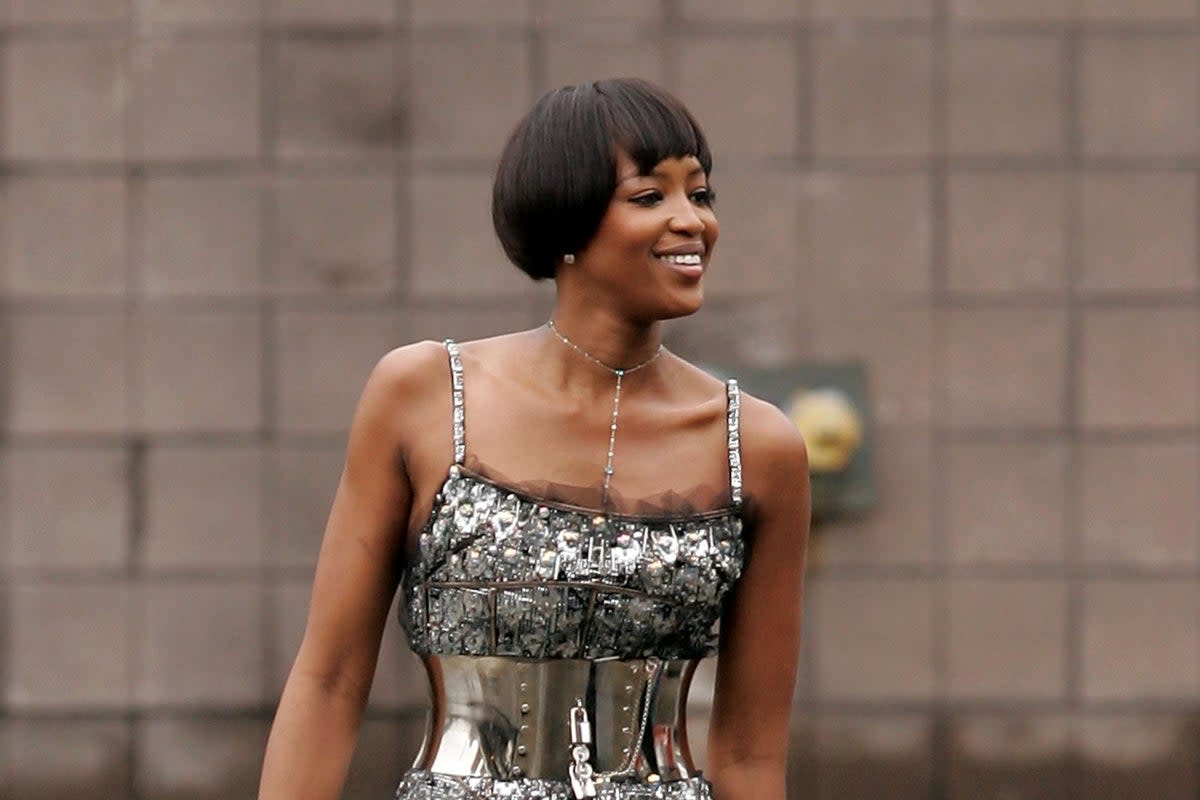
A montage of clips showing a newly-scouted 17-year-old Naomi Campbell strutting down a catwalk greets you upon entering the V&A’s new exhibition, NAOMI: In Fashion, which traces the supermodel’s inimitable career through 100 garments that have come to define her story.
In the clips, Campbell’s gait is more playful and bouncy for an Alaïa show; smooth and serious for a Versace show. It shows the young model experimenting with her walk early in her career, adapting to fit a brief from each designer. But as the exhibition develops, and visitors watch Campbell’s unmistakable walk become more defined, we learn how the supermodel has come to have seismic influence over the fashion industry.
The exhibition marks the first time the South Kensington museum has focussed on the career of a living fashion model, as it tracks Campbell’s career and personal life through objects and garments from Campbell’s personal archive, ranging from her first headshots, to her 2020 Covid-19 hazmat suit look and her most-prized haute couture ensembles.
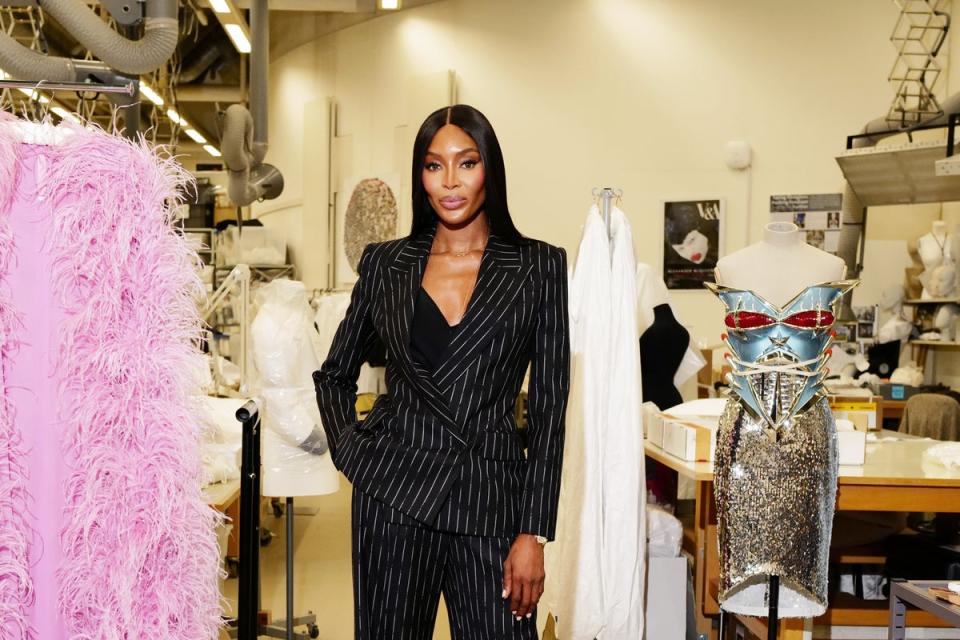
Many of the pieces chosen by Campbell, 53, and the V&A curators typify key moments in the model’s career, including the pair of blue Vivienne Westwood Anglomania platform shoes (worn when she famously tumbled on the catwalk in 1993), the lavender tunic and jacket worn by Campbell for Karl Lagerfeld’s Chanel SS 1994 ready-to-wear collection and the Lagerfeld dress she wore in 1988 as the first Black woman to appear on the cover of VogueParis in the magazine’s 68-year history
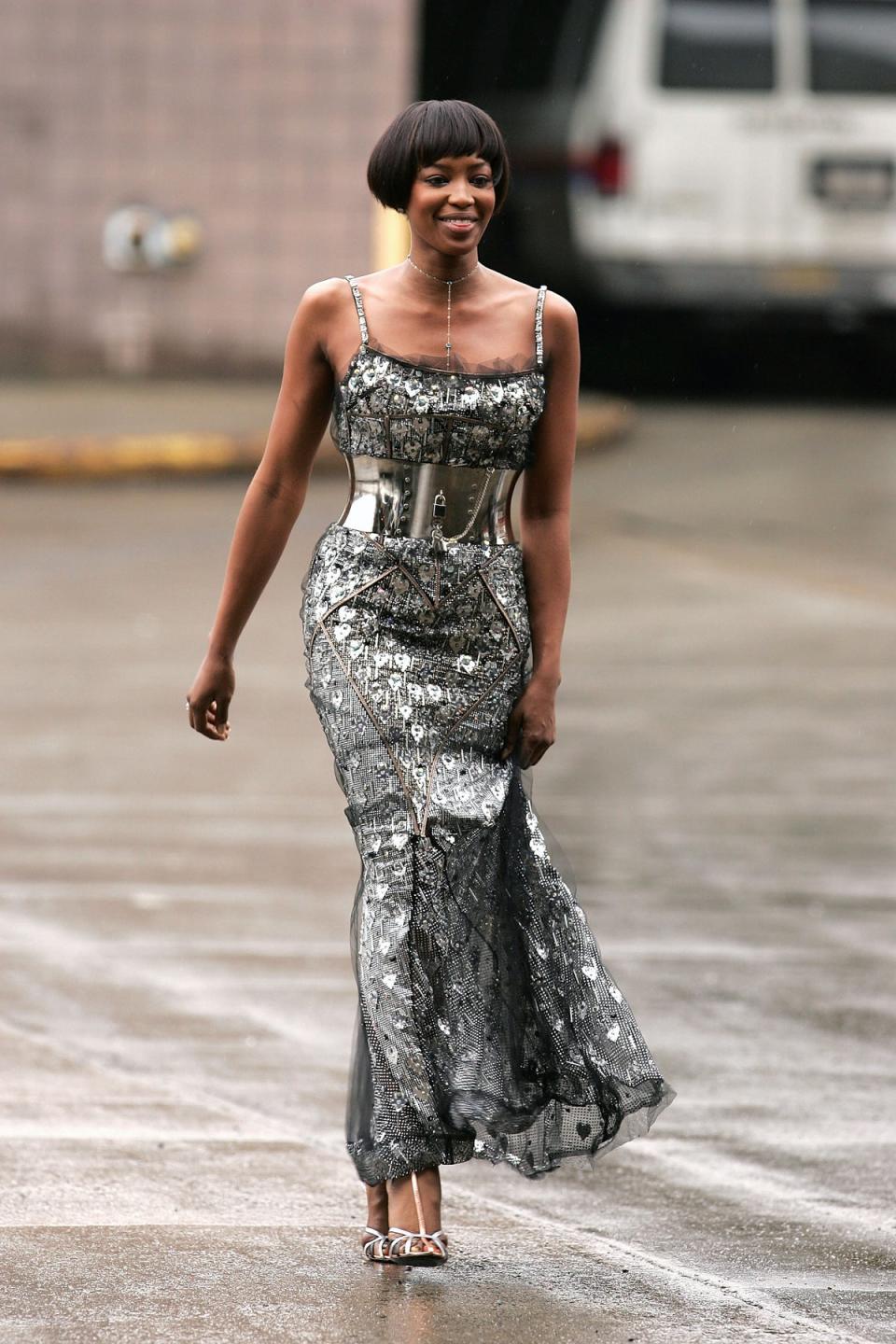
The exhibition does not shy away from some of Campbell’s more controversial moments. One standout outfit is the grey bedazzled Dolce and Gabbana dress worn on her final day of community service at the New York City Department of Sanitation in March 2007, which she had completed as punishment for throwing a phone at her housekeeper’s head. At the time, Campbell responded to the overwhelming press attention by documenting her journey of going to trial and doing community service in a feature in W Magazine, titled “The Naomi Diaries” in which she wrote: “I thought if anyone is going to write about it, I was going to say it myself. It was part of my life that I went through, I own that. I chose to wear this dress knowing it was going to get attention.”
She later wrote of her behaviour: “Some people can handle a drink or a line of cocaine, but I’ve come to realise that, for me, it’s all or nothing – and it has to be nothing. And my life has changed since. I’m not saying this to excuse what I did. I threw the phone, I take responsibility.”
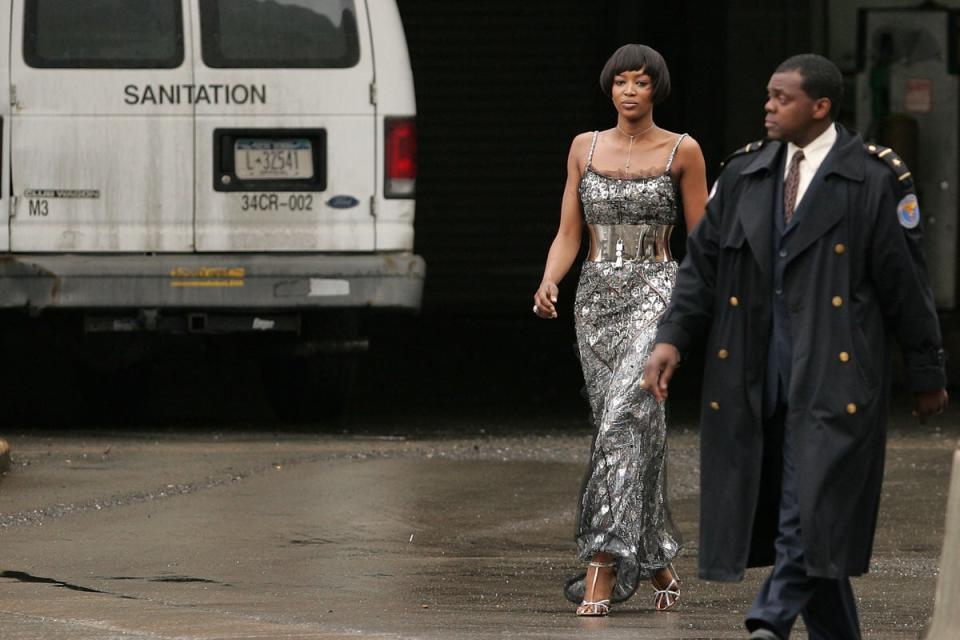
The feather and fur Alexander McQueen coat she wore to the funeral of the late fashion designer, in 2010, is also on display at the exhibition, which paid homage to Lee McQueen’s longstanding fascination with birds present in some of his last collections before his death. Elsewhere, Campbell chose to pay homage to Yves Saint Laurent who was an early supporter of her work, since he was known for championing Black models and famously threatened to pull his advertising from Vogue Paris if they did not give Campbell her first cover.
The designer that is celebrated the most, though, is the late Tunisian-born, Paris-based designer Azzedine Alaïa, who shared a close personal and professional relationship with Campbell after he opened up his home and studio to the young model early on in her career, and with her mother’s permission, Campbell lived with the designer, his partner and their dogs as she made her mark on the modelling industry. She would go on to call him “Papa” and would feature in all of his catwalk shows.
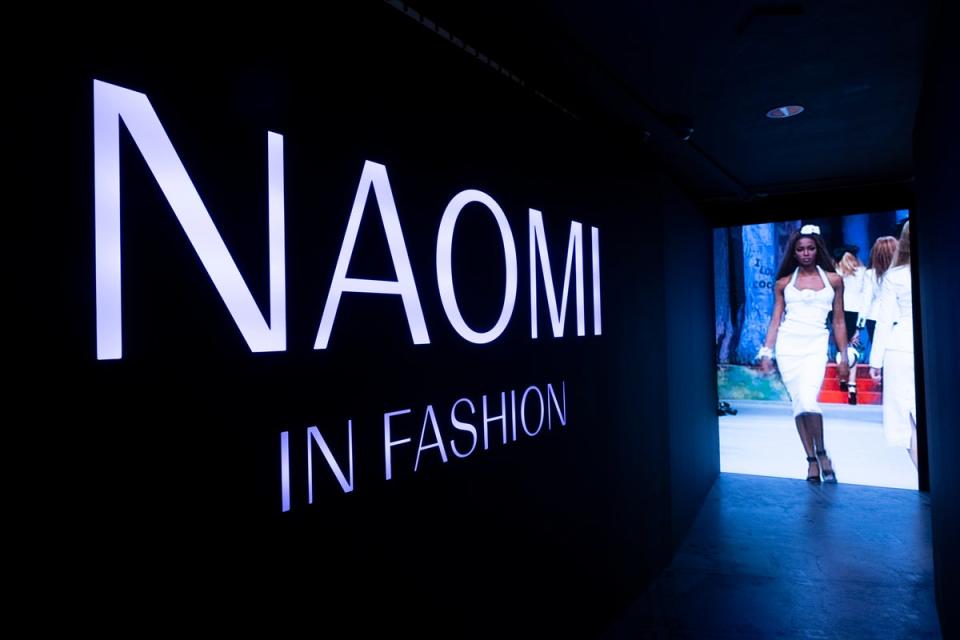
The display features the leopard-print knitwear bodysuit from the designer’s Autumn/Winter 1991 ready-to-wear collection worn by Campbell for the 1991 cover of Interview magazine, while video clips from her Alaïa catwalk appearances show a young Campbell performing energetic tap dancing choreography, ballet steps and contemporary dance moves down the runway, using her skills learnt at the Italia Conti performing arts school, where she was a student before she was scouted aged 17.
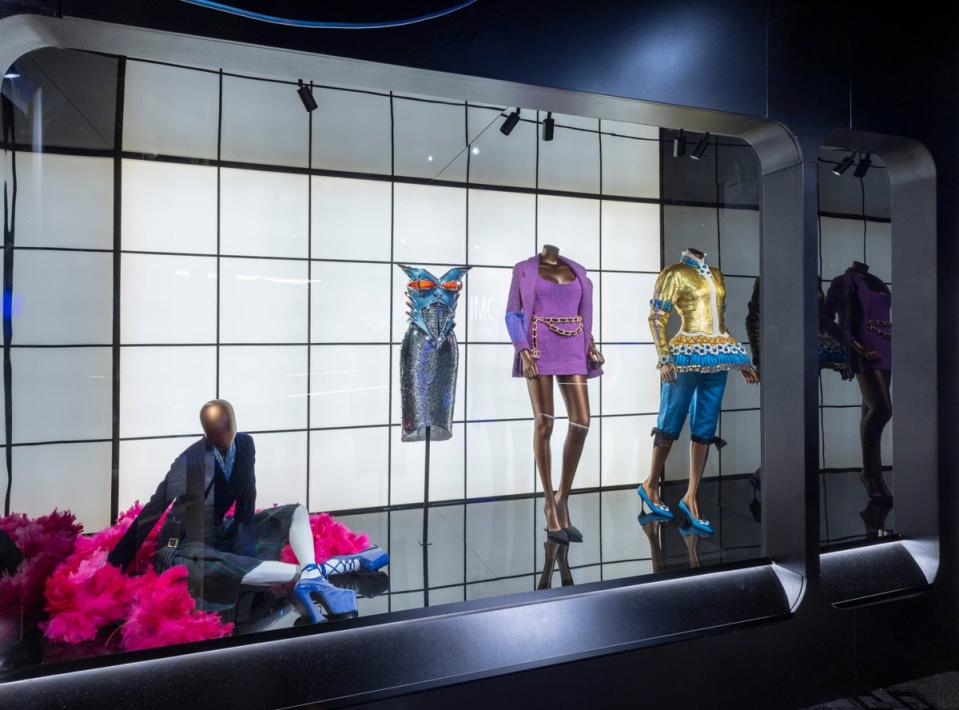
The upstairs room of the exhibition is filled with a 360 projection of Campbell’s best fashion photography moments, with 15 minutes of moving images curated by former British Vogue editor-in-chief Edward Enninful. They feature key cover shoots, such as the 2009 Harper’s Bazaar cover that saw Campbell dressed in a leopard print dress, sprinting alongside a running leopard, the model’s history-making Vogue covers as well as her 2022 cover taken as she cradles her first baby, born via surrogate when was 50.
A portion of the exhibition focuses on Campbell’s well-known activism work, in which she has advocated for race equality from an early age, joining the Black Girls Coalition in 1989 and fronting the 2007 ‘black issue’ of Vogue Italia. There is also a section exploring her relationship with Nelson Mandela, who once called her his “honorary granddaughter”, displaying photographs of the pair embracing, taken from Campbell’s personal collection.
NAOMI: In Fashion, supported by BOSS, opens from 22 June 2024 to 6 April 2025. Tickets are available on the V&A website here.


